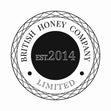You have no items in your shopping cart.
Save the Bees
 |
||
|
At the British Honey Company, we are passionate about raising awareness of the plight of the honeybee. Bee populations are declining all over the world, threatened by habitat loss, pollution and the use of pesticides. As important pollinators of the food we eat – more than 75% of the world’s food crops depend upon bees – ensuring the sustainability of the species is something we can all play a part in. Since 2017, we have been members of the Bee Farmers Association, championing British beekeeping through the use of 100% pure British honey in our Keepr’s honey infused spirits. This honey is made by British bees who have gathered pollen from a wonderful mix of blossoms from all over Britain and is regularly tested at our in-house laboratory to ensure its provenance. Local beekeepers work hard to care for their bees and supporting them has a positive impact on the survival of the species. |
||
 |
||
How you can helpThere are many small ways in which you can help reverse bees’ decline. Here’s how…
|
||
 |

